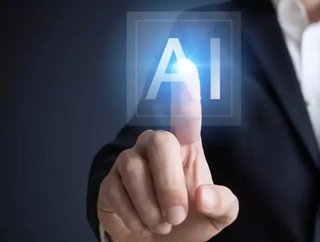AI to thrive in logistics space, says IBM and DHL

Artificial Intelligence (AI) is set to thrive in the logistics space, according to a joint report published by DHL and IBM.
The two industry giants evaluated the potential AI in logistics and exposed how it can be best applied to transform the industry, giving rise to a new class of intelligent logistics assets and operational paradigms.
While AI is already ubiquitous in the consumer realm, as demonstrated by the rapid growth of voice assistant applications, DHL and IBM find that AI technologies are maturing at great pace, allowing for additional applications for the logistics industry.
These can, for instance, help logistics providers enrich customer experiences through conversational engagement and even deliver articles before the customer has even ordered them.
“Today's current technology, business, and societal conditions favour a paradigm shift to proactive and predictive logistics operations more than any previous time in history" explains Matthias Heutger, Senior Vice President and Global Head of Innovation DHL.
“As the technological progress in the field of AI is proceeding at great pace, we see it as our duty to explore, together with our customers and employees, how AI will shape the logistics industry's future.”
Many industries have already successfully adopted AI into their everyday business, such as the engineering and manufacturing industry: AI is being used in production lines to help streamline production and maintenance through image recognition and conversational interfaces.
SEE ALSO:
With the help of AI, the logistics industry will shift its operating model from reactive actions to a proactive and predictive paradigm, which will generate better insights at favourable costs in back office, operational and customer-facing activities.
For instance, AI technologies can use advanced image recognition to track condition of shipments and assets, bring end-to-end autonomy to transportation, or predict fluctuations in global shipment volumes before they occur.
“Technology is changing the logistics industry's traditional value chains, and ecosystems are reshaping enterprises, industries and economies,” said Keith Dierkx, IBM Global Industry Leader for Freight, Logistics, and Rail.
“By leveraging AI into core processes, companies can invest more in strategic growth imperatives to modernise or eliminate legacy application systems. This can make existing assets and infrastructure more efficient, while providing the workforce with time to enhance their skills and capabilities."
In the report, DHL and IBM conclude that AI will develop to become as omnipresent in the industrial sector as it currently is in the consumer world.
- Alberto Medina, Founder of Telescope at P&SC LIVE SingaporeDigital Supply Chain
- Why blockchain is vital to managing risk in the supply chainSupply Chain Risk Management
- How Programmers.io is creating trusted partnershipsDigital Supply Chain
- How Programmers.io is creating trusted partnershipsTechnology






